If someone in your family tree was born in Portugal, there’s a good chance you might be eligible for citizenship yourself. This path, called citizenship by descent, is one of the easiest ways to get a second passport; no need to live in Portugal or make big investments.
I’ve helped a friend get his citizenship this way, and trust me, if you have the right documents and know what to expect, the process is more straightforward than you’d think.
Portuguese Citizenship by Descent
Portuguese citizenship by descent allows individuals to claim nationality based on their family ties to a Portuguese parent or grandparent. If you can prove your connection and meet a few simple requirements, you may become a Portuguese citizen without ever having lived there.
Who Can Apply for Portuguese Citizenship by Descent?
Understanding who qualifies is the first and most important step. Portugal has clear rules about who can apply, and these are mainly based on lineage, not where you were born or live. The eligibility depends on how closely you’re related to a Portuguese citizen and whether certain conditions are met.
Citizenship through a Portuguese Parent
If at least one of your parents was a Portuguese citizen at the time of your birth, you are generally entitled to Portuguese citizenship. This is the most straightforward case. The law treats you as Portuguese by birth; you’re simply formalizing what’s already yours. There’s no language test, no need to show a connection to Portuguese culture, and no requirement to have ever lived in Portugal.
Citizenship through a Portuguese Grandparent
This route is slightly more complex but still very achievable. If your grandparent was born in Portugal and held Portuguese citizenship, you may qualify. However, in this case, the government wants to see a “connection” to the country. This is where things like basic knowledge of Portuguese (A2 level) and proof of cultural or emotional ties come in.
Now let me tell you a quick story: my friend Ana found out her grandmother was Portuguese after her mom passed away. Ana didn’t speak a word of Portuguese and had never been to Europe. Still, she took weekend classes, got her A2 certificate, and wrote a short letter explaining how her grandmother’s traditions were part of her life. She got approved within 2 years. Her story shows that even if you start from scratch, it’s possible.
Sephardic Jewish Descent
Portugal offers a special path for people with Sephardic Jewish ancestry. If you can prove that your family descends from Jews expelled from the Iberian Peninsula during the 15th century, you may qualify. This route requires documents from a recognized Jewish community confirming your heritage, and often takes longer due to extra steps.
Adopted Children and Special Cases
Adopted children of Portuguese citizens may also qualify, as long as the adoption took place under Portuguese law or was later recognized in Portugal. There are also unique rules for people who were born abroad but registered at a Portuguese consulate shortly after birth.
What Are the Main Requirements?
Once you know you’re eligible, the next step is gathering the right documents and meeting a few legal requirements. This part can feel a bit technical, but it’s where most people get stuck, not because it’s too hard, but because they’re not sure exactly what’s needed or how to prepare everything properly. Let me break it down for you clearly and simply.
Proof of Lineage
The most important part of your application is proving your connection to your Portuguese ancestor. If you’re applying through a parent, you’ll need to show their Portuguese birth certificate and your own full birth certificate. These documents must clearly show the link between the two of you. If you’re going through a grandparent, you’ll also need your parent’s birth certificate, again showing the family line from your grandparent to you.
Every document must be in full form, meaning it needs to include all names, dates, and places of birth or marriage. Short forms or summaries are not accepted. These must come from official sources; no handwritten family trees or unsupported claims will be considered.
Identity and Criminal Background
You’ll also need to submit a valid ID or passport and a certificate proving that you have no criminal record. This certificate must be issued by the country or countries where you’ve lived for the past year or more. It’s not just about showing you’re law-abiding; Portugal wants to ensure its new citizens meet basic safety and legal standards.
Many people forget that these documents often need to be recent. Most criminal background checks are only valid for a few months. If you submit them too early, they may expire before your file is even reviewed.
Apostille and Translation
If your documents are not in Portuguese, they must be translated by a certified translator. Once that’s done, every official document (birth certificates, marriage certificates, background checks) must be legalized with an apostille. This is an international stamp that proves the document is valid for use in another country.
In many cases, people submit good documents but forget to apostille them or use unofficial translations. That alone can cause months of delay or even a full rejection. If your documents are coming from multiple countries, like your parents’ certificates from one country and your own from another, you’ll need to follow the apostille process for each one individually.
Evidence of Connection (For Grandchildren)
If you’re applying through a grandparent, Portugal wants to see some form of connection to the country. This could be a basic Portuguese language certificate (level A2), a history of visiting Portugal, participation in Portuguese cultural groups, or even letters explaining how Portuguese traditions influenced your upbringing.
You won’t have to prove deep knowledge or live there, but the law does ask for a meaningful link. The A2 level is often the most straightforward way to meet this requirement. It’s a beginner level that covers simple conversation and basic writing.
Application Form and Fees
Finally, you’ll need to complete the official application form from the Portuguese government or consulate. This form asks for your personal details, ancestors’ details, and includes a declaration that your information is truthful.
There is also a government fee, which varies slightly depending on the consulate but is generally affordable. It must be paid at the time of submission, and in some places, it can only be paid via bank transfer, not cash or card.
According to the Institute of Registries and Notaries (IRN), over 63,000 citizenship applications were submitted between January and April 2024, reflecting rising interest, while as of June 2025, approximately 700,000 applications were still pending
Is There a Language Requirement?
Whether or not you need to speak Portuguese depends on how you’re applying for citizenship by descent. Portugal has different expectations based on your relationship to your Portuguese ancestor.
No Language Test If You’re Applying Through a Parent
If your parent was a Portuguese citizen when you were born, you do not need to speak Portuguese or pass any language exam. The law treats you as already Portuguese by origin, so there’s no need to prove cultural or language ties.
This is the simplest and fastest path, as you’re considered Portuguese by birth under jus sanguinis (right of blood). You just need to provide documents proving your parents’ nationality and your connection.
A2 Level Required If You’re Applying Through a Grandparent
If you’re applying through a grandparent, Portuguese law requires you to show an effective connection to the country. One of the easiest ways to do this is by passing an A2-level Portuguese language exam, which is a beginner level.
Here’s what the A2 Portuguese test covers:
- Basic conversation skills (introductions, asking questions)
- Reading short texts
- Writing simple sentences
- Understanding common phrases in daily life
You’ll need to take the CIPLE exam (Certificado Inicial de Português Língua Estrangeira), which is recognized by the Portuguese government.
Table: Do You Need a Language Test?
| Your Connection to Portugal | Language Test Required? |
| Parent is Portuguese | No |
| Grandparent is Portuguese | Yes (A2 level – CIPLE) |
| Sephardic Jewish descent | Often no, but proof of a cultural link is needed |
| Adopted by a Portuguese citizen | Case-by-case basis |
Tips for Preparing
- Take an online A2 prep course from certified platforms
- Join local language centers or Portuguese cultural groups
- Practice conversational skills with native speakers or tutors
Passing this exam is very doable, even if you’re starting from zero. Many test-takers report that they were able to prepare within a few months using part-time study.
How to Apply for Portuguese Citizenship by Descent
Once you’ve confirmed your eligibility and prepared the required documents, it’s time to apply. The process might feel a bit formal, but it’s actually quite structured. Whether you’re applying through a parent, grandparent, or Sephardic ancestry, the steps are fairly consistent.
Step-by-Step Application Process
Here’s a clear breakdown of how the application works:
Step 1: Gather all documents
Make sure you have everything: birth certificates, ID copies, criminal record certificates, translations, and apostilles. Missing or outdated documents are a common reason for delays.
Step 2: Translate and legalize
Documents that are not originally in Portuguese need to be translated by a certified translator. Every foreign document must be legalized with an apostille stamp to be accepted in Portugal.
Step 3: Complete the application form
You’ll need to fill out the official Portuguese nationality form. This asks for personal details and your family lineage. It’s available on the IRN (Instituto dos Registos e Notariado) website or through your nearest consulate.
Step 4: Submit your application
- Applications can be submitted:
- Directly to the Central Civil Registry Office in Lisbon
- At a Portuguese consulate in your country
- Through a lawyer or immigration consultant
- Consulates can guide you if you’re unsure, especially when handling translations and payment steps.
Step 5: Pay the government fee
Fees vary slightly depending on how and where you apply. On average, you can expect to pay between €175 and €250. Always check the current fee and payment method before submission.
Step 6: Wait for processing
After submission, your documents are reviewed by the Portuguese authorities. If everything is in order, your citizenship will be approved, and you’ll receive a registration certificate.
Tips for a Smooth Application
- Double-check that names and dates match exactly across all documents
- Keep copies of everything you submit
- Be patient, processing times often range from 12 to 36 months, depending on the case
Applying might take time, but with careful preparation, it’s a very achievable goal. In the next section, we’ll talk about how long the whole process usually takes and what can cause delays.
How Long Does the Process Take?
The timeline for obtaining Portuguese citizenship by descent varies based on how you apply, the quality of your documentation, and how busy the authorities are. While it’s not an overnight process, understanding the expected duration helps you plan better and avoid unnecessary stress.
Average Processing Times
For most applicants, the entire journey takes between 12 and 36 months. If you’re applying through a Portuguese parent and all documents are in perfect order, you could receive citizenship within a year to 18 months. This is the fastest route because the law treats you as Portuguese from birth, which reduces the need for extra verification.
If you’re applying through a grandparent, things usually take longer, between 24 to 36 months. That’s because the government needs more evidence, like your language certificate and proof of cultural connection. These additional checks take time to process and review. In some cases, especially when documents are incomplete or require follow-up, it may even extend beyond three years.
Factors That Influence the Timeline
Several key factors can either speed up or slow down your application. The first is the accuracy and completeness of your documents. Any mismatch in names, missing apostilles, or incorrect translations can cause delays. Authorities will send a request for corrections, which pauses your application until those are fixed.
The second major factor is where you submit your application. Applying directly in Portugal, either in person or through a lawyer, tends to be faster than going through a consulate. Some consulates may have their own internal backlog, and communication between offices can slow things down.
Another consideration is the time of year. Government offices in Portugal often work more slowly during the summer months and around public holidays. If your application lands during those periods, expect slower movement.
What Happens After Approval?
Once your application is approved, you’ll receive a certificate of Portuguese nationality. This is your official proof of citizenship. You can then apply for a Portuguese ID card and passport, which is a separate process but usually much quicker, often within a few weeks once you’re registered.
Understanding this timeline up front helps you manage your expectations. In the next section, we’ll talk about why so many people are choosing Portuguese citizenship and what benefits come with it.
Benefits of Portuguese Citizenship (Especially for Expats)
Portuguese citizenship opens the door to a wide range of personal and professional opportunities. It’s more than just a passport; it’s a legal status that gives you access to benefits across Europe and beyond. Whether you’re looking for travel freedom, better education options, or a stronger safety net, Portuguese nationality can change your life.
Visa-Free Travel and Global Mobility
One of the biggest advantages is visa-free access to over 190 countries. As a Portuguese citizen, you can travel easily throughout the European Union, Schengen Area, the United Kingdom, Canada, and many other destinations without applying for visas or dealing with long waiting periods. This kind of mobility can save you time, money, and a lot of hassle, especially if you travel for work or family reasons.
The Right to Live, Work, and Study Across the EU
Portuguese citizenship gives you full rights to live, work, or study in any of the 27 EU countries. You’re treated just like a local citizen in countries like Germany, France, Ireland, or Spain. This opens the door to jobs that would otherwise be closed to foreigners, access to public universities with low tuition fees, and even healthcare and housing benefits, depending on where you live.
If you’re raising children or planning to in the future, this can make a huge difference. EU citizenship gives them access to better education, broader career options, and long-term security.
Dual Citizenship is Allowed
Portugal allows dual or even multiple citizenships, so you don’t have to give up your existing nationality. This means you can enjoy the benefits of both your current country and Portugal without any conflict, as long as your home country also allows dual nationality.
Access to Healthcare, Retirement, and Safety Nets
As a Portuguese citizen, you’re eligible for the country’s public healthcare system and social benefits, including pensions and unemployment support if you move to Portugal. Even if you don’t plan to live there full-time, having this access adds a layer of financial security.
Common Mistakes People Make (And How to Avoid Them)
Applying for Portuguese citizenship by descent might seem simple on paper, but many applicants face delays or even rejections due to avoidable errors. Most of these mistakes happen not because the rules are too hard, but because small details are overlooked. Let’s go through the most common issues and how you can stay on track.
Submitting Incomplete or Incorrect Documents
This is by far the most frequent mistake. People often submit birth certificates that are outdated, translated incorrectly, or missing important details. Others forget to include key documents like marriage certificates of their ancestors or criminal background checks. Even small spelling mistakes or name mismatches across documents can cause problems. Authorities in Portugal are strict about consistency and accuracy. If any detail doesn’t line up, your file may be paused or returned.
Skipping the Apostille Process
Apostilles prove that your foreign documents are legally recognized for international use. Without this stamp, your paperwork may be considered invalid. Many applicants forget this step entirely, or apply it only to some documents. Each certificate, birth, marriage, or criminal record, must have its own apostille, and each one must come from the correct issuing country.
Not Preparing for the Language Test Early Enough
For those applying through a grandparent, the A2 language requirement is often left for last. But preparing for the CIPLE exam takes time, especially if you’re new to the language. Waiting too long to start studying can delay your entire application. Worse, some people schedule the exam without proper preparation and fail, adding more months to their timeline.
Assuming Ancestry Guarantees Approval
Just because your grandparent or parent was Portuguese doesn’t mean your application is automatically approved. You still need to meet all legal conditions and show complete, official proof of the connection. The government needs legal evidence, not just family stories or old photos.
Missing Updates or Failing to Follow Up
Once your application is submitted, it doesn’t mean your job is done. It’s important to track your case and respond quickly if the authorities ask for more documents. Some applicants miss emails or letters requesting clarification, which causes long delays.
Final Thoughts
Portuguese citizenship by descent is one of the most accessible and rewarding ways to secure a second nationality. If you have a Portuguese parent or grandparent, and you’re willing to gather the right documents and follow the process step by step, it’s absolutely within reach.
Start organizing your documents now, take it one step at a time, and soon you could be holding a passport that opens doors across Europe and the world.
Ready to Start Your Journey?
If you believe you have Portuguese roots and want expert help to secure your citizenship, The Open World can guide you every step of the way. From document preparation to application submission, their team has helped clients worldwide, especially from the UAE and the Gulf region, successfully obtain Portuguese nationality.
Visit the Open World and book your consultation today. Let professionals take care of the process, so you can focus on planning your future in Europe.
FAQs About Portuguese Citizenship by Descent
When you’re considering applying for citizenship through ancestry, questions naturally come up. Some of these can feel confusing, especially with so many online sources giving mixed advice. Below are answers to the most common and relevant questions people ask when exploring Portuguese citizenship by descent.
Do I have to live in Portugal to apply?
No, living in Portugal is not required. You can apply from anywhere in the world, as long as you can prove your family connection and meet the legal requirements. Most people apply through a Portuguese consulate or hire a lawyer in Portugal to handle it directly.
Can I keep my current citizenship?
Yes, Portugal allows dual citizenship. This means you can become Portuguese while still keeping your existing nationality, unless your home country requires you to give it up. It’s always best to double-check your country’s policy, but from Portugal’s side, there’s no issue.
What if my Portuguese ancestor is deceased?
That’s perfectly fine. Your parent or grandparent doesn’t have to be alive for you to apply. What matters is that they were a Portuguese citizen at the time of your birth (if it’s your parent) or that you can prove your descent and connection (if it’s your grandparent).
Can adopted children apply?
Adopted children can qualify under certain conditions. If the adoption was done under Portuguese law or recognized by Portugal, the child may apply for citizenship. The rules here are a bit more technical, so it’s often wise to get legal guidance for this type of case.
How long does it take to get a Portuguese passport after approval?
Once your citizenship is approved, you’ll receive a certificate of nationality. After that, you can apply for your Portuguese ID card and passport. These documents usually arrive within a few weeks if you apply in Portugal or through a consulate.




